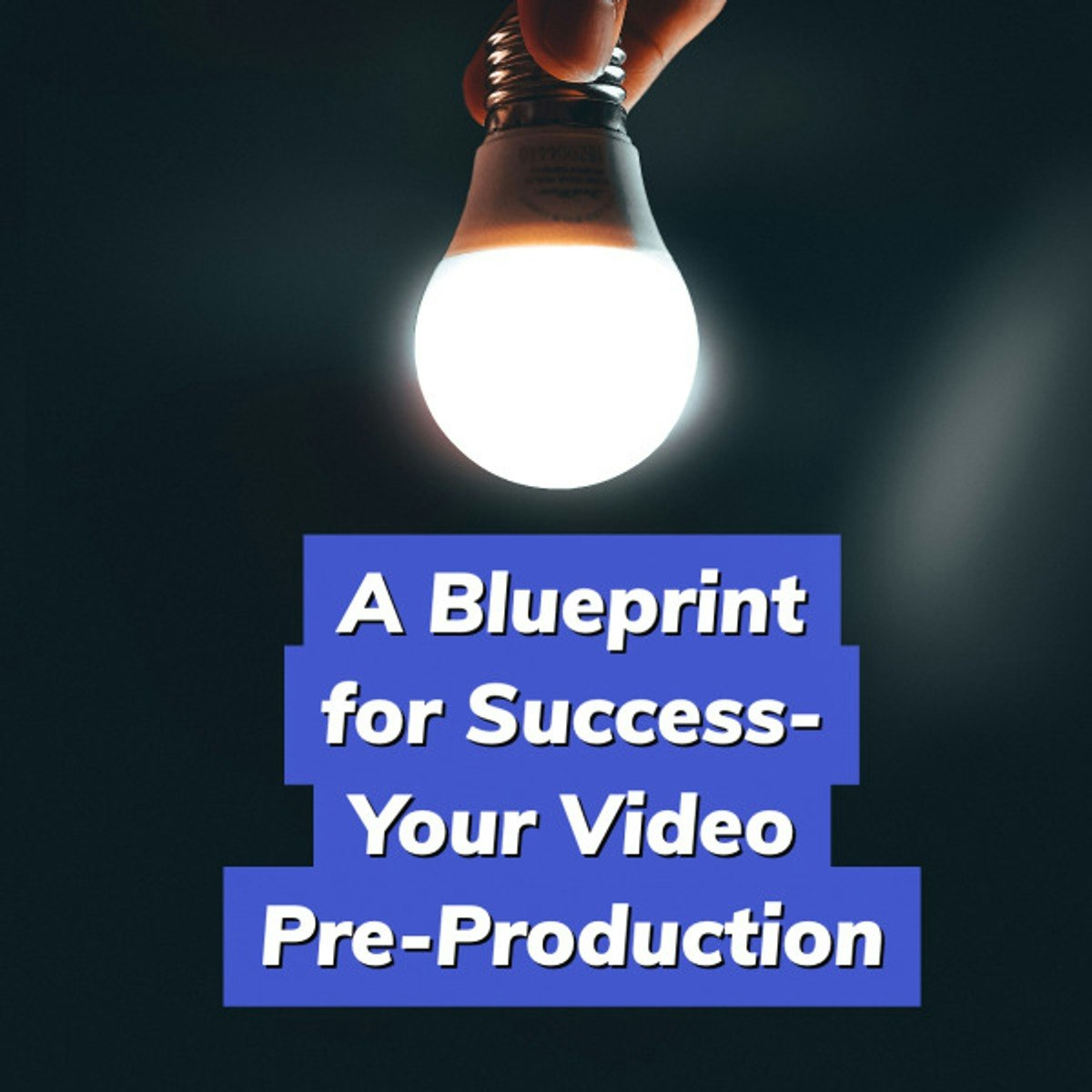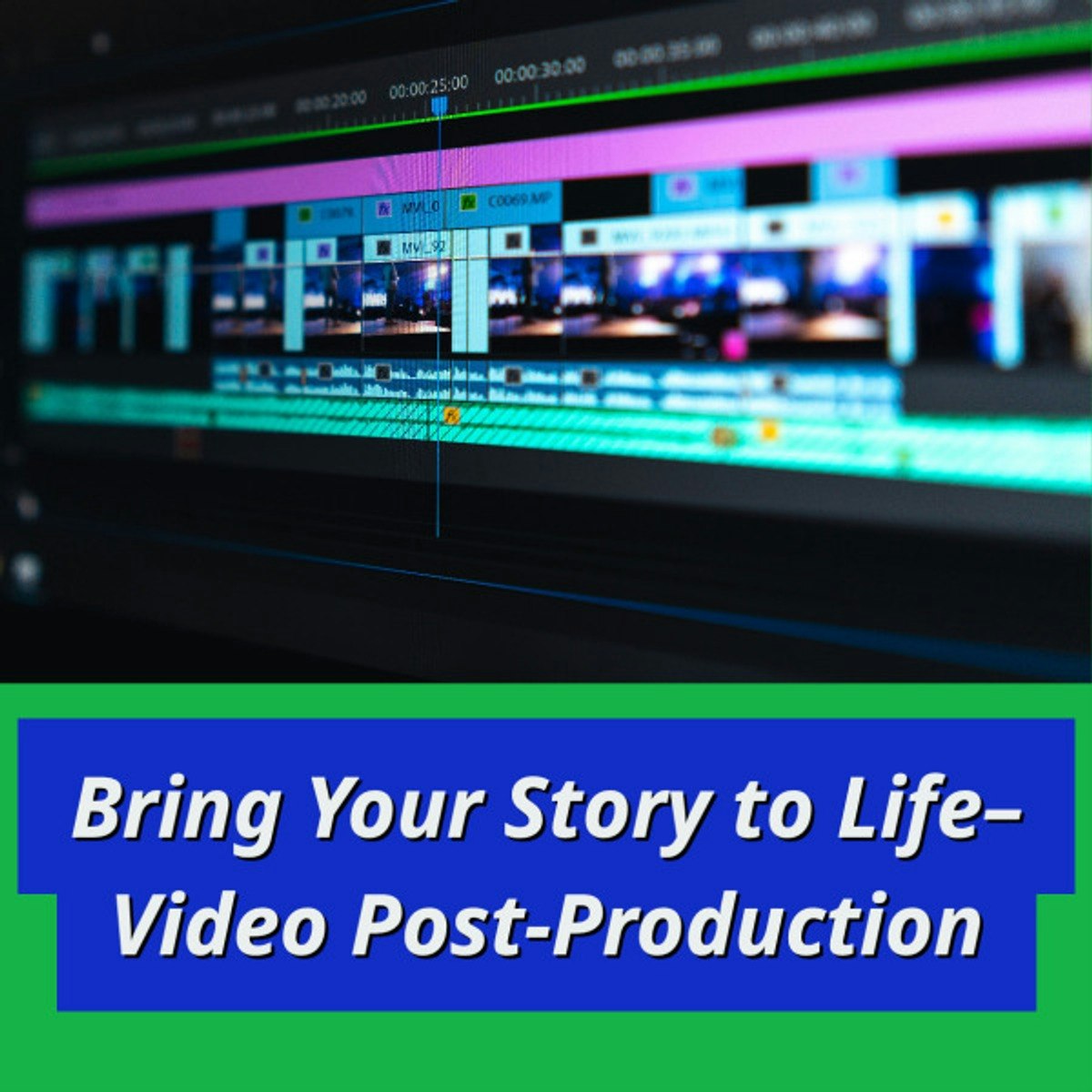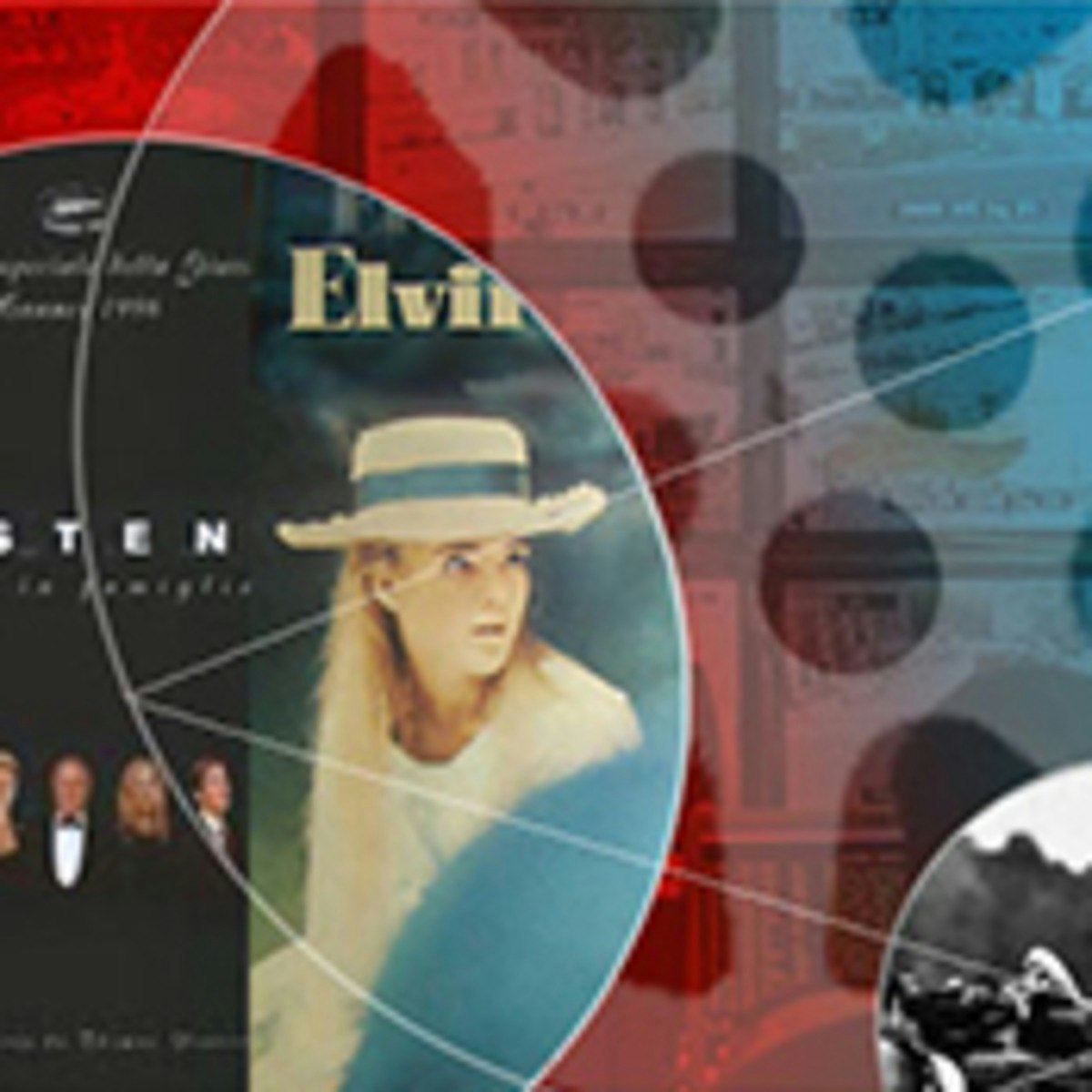Television Producer
A Career Guide to Becoming a Television Producer
A Television Producer is a central figure in the creation of television content, overseeing projects from the initial concept through to completion and distribution. They are the organizers, the strategists, and often the creative anchors who ensure a television show, series, or special is realized successfully, meeting both artistic goals and practical constraints like budgets and deadlines. Their work shapes what we watch, influencing culture and entertainment.
Working as a Television Producer can be incredibly dynamic and rewarding. You might find excitement in developing a raw idea into a fully-fledged series, guiding the creative vision, and assembling the perfect team. The fast-paced nature of production, problem-solving on the fly, and seeing your project connect with an audience are also major draws for many pursuing this demanding but fulfilling career path.
Introduction to Television Production
What is Television Production?
Television production is the multifaceted process of creating content for broadcast television, cable channels, or streaming services. It involves generating ideas, writing scripts, securing funding, hiring cast and crew, managing filming or recording, editing footage, and delivering the final product. A Television Producer orchestrates these complex stages.
The scope is vast, covering everything from news programs and documentaries to sitcoms, dramas, reality shows, and live events. Each genre has unique production demands, but the producer's core function remains consistent: to manage resources effectively and guide the project towards its intended vision and audience.
Think of the producer as the project manager of a television show. They ensure all the pieces – creative, financial, logistical – come together seamlessly. Without a producer, even the best ideas might struggle to make it to the screen.
Producers vs. Directors vs. Writers
While roles in television production often overlap, key distinctions exist. The Writer creates the script, dialogue, and narrative structure. The Director translates the script into visual and auditory experiences, guiding actors' performances and overseeing the camera work and sound recording during filming.
The Television Producer, however, typically has a broader remit. They might be involved from the very beginning, finding or developing the initial concept. They manage the budget, hire key personnel (including writers and directors), manage schedules, and oversee the entire production process, including post-production editing and distribution deals. Some producers focus more on creative aspects (like a Showrunner in episodic TV), while others emphasize logistics and finance (like a Line Producer).
Essentially, writers create the story, directors shape the on-set execution, and producers manage the overall project and ensure its viability from start to finish. Understanding these distinctions helps clarify the producer's central coordinating role in the complex world of television creation.
The Television Production Lifecycle
Television production typically follows a lifecycle with distinct phases. It begins with Development, where ideas are conceived, pitched, and scripts are written. Producers secure rights, initial funding, and key creative talent during this phase.
Next comes Pre-production. This is the planning stage where the producer finalizes budgets, hires the full cast and crew, scouts locations, creates detailed shooting schedules, and arranges for equipment and logistics. Careful pre-production is vital for a smooth shoot.
Production (or Principal Photography) is the actual filming or recording phase. The producer oversees daily operations, ensuring the project stays on schedule and within budget, while managing the cast and crew and solving any problems that arise. The director takes the lead on creative execution during this phase.
Post-production follows filming. Here, editors assemble the footage, sound designers mix audio, visual effects are added, and music is scored. The producer supervises this process, ensuring the final product aligns with the creative vision and technical standards before moving to Distribution, where the show is delivered to networks, streaming platforms, or other outlets.
Roles and Responsibilities of a Television Producer
Pre-Production Planning
Before cameras roll, a significant amount of work occurs in pre-production, largely driven by the producer. This involves refining the script, sometimes working closely with writers. A key responsibility is creating and managing the budget, allocating funds for everything from cast salaries and location fees to equipment rentals and catering.
Hiring is another critical pre-production task. The producer selects key department heads, such as the director (if not already attached), director of photography, production designer, and casting director. They oversee the casting process to find the right actors for the roles.
Detailed scheduling, location scouting, securing permits, and ensuring legal clearances (like rights management) are also handled during this phase. Effective pre-production lays the groundwork for an efficient and successful shoot, minimizing potential problems later on.
Understanding the complexities of budgeting and scheduling is fundamental. These online courses offer insights into project management principles often applicable in production environments.
Oversight During Production
Once filming begins, the producer's role shifts to oversight and problem-solving. They are responsible for keeping the production on schedule and within budget, which often requires making quick decisions under pressure. This involves managing the crew, handling logistics, and addressing any unforeseen issues, from equipment malfunctions to weather delays.
The producer acts as the liaison between the director, the crew, the studio or network executives, and sometimes the financiers. They ensure communication flows effectively and that the practical needs of the production are met without compromising the creative vision excessively.
While the director focuses on the creative aspects moment-to-moment on set, the producer maintains the broader perspective, monitoring progress, managing resources, and ensuring the overall health and safety of the production environment. This requires strong leadership and organizational skills.
Post-Production and Distribution Strategy
After filming wraps, the producer guides the project through post-production. This involves coordinating with editors, sound designers, visual effects artists, and composers to assemble the final product. The producer provides feedback during the editing process, ensuring the story is effectively told and meets technical requirements.
They oversee the creation of different versions (e.g., for different markets or platforms) and ensure deliverables meet the specifications of distributors. This phase also includes managing the final budget reconciliation and preparing materials for marketing and promotion.
Beyond editing, the producer is often involved in distribution planning. This might include negotiating deals with networks or streaming services, strategizing festival submissions, or planning a marketing campaign. Their goal is to ensure the finished product reaches its intended audience effectively.
These courses cover aspects of post-production, offering practical skills in editing and understanding the workflow.
These books delve into the technical and artistic aspects of post-production and visual storytelling.
Balancing Creativity and Logistics
A defining aspect of the television producer role is the constant balancing act between creative aspirations and logistical realities. Producers must understand and champion the artistic vision of the project while simultaneously managing budgets, schedules, and personnel.
This often involves making difficult decisions. For instance, a director might want an expensive visual effect or an extra day of shooting, but the producer must weigh this against the budget and timeline constraints. They need to find creative solutions that satisfy both artistic goals and practical limitations.
Successful producers possess both a strong creative sense and excellent business acumen. They can speak the language of artists and financiers, bridging the gap between vision and execution. This duality is what makes the role challenging but also uniquely rewarding.
Skills and Competencies for Television Producers
Essential Technical Familiarity
While producers don't necessarily need to be expert technicians, a fundamental understanding of the production process and tools is crucial. Familiarity with camera types, lighting principles, sound recording techniques, and editing software (like Adobe Premiere Pro or Avid Media Composer) allows them to communicate effectively with technical crews.
Understanding the capabilities and limitations of technology helps producers make informed decisions about budgets, schedules, and creative possibilities. Knowing the basics of post-production workflows, file formats, and delivery specifications is also important for overseeing the final stages of a project.
This technical literacy enables producers to anticipate potential issues, evaluate technical requests, and contribute meaningfully to discussions about how best to achieve the desired look and sound for the production.
These courses provide introductions to essential software and techniques used in video production and editing.
These books offer deeper dives into production techniques and visual storytelling.
Crucial Soft Skills
Beyond technical knowledge, soft skills are paramount for a television producer. Strong leadership is essential to motivate and manage diverse teams of creative and technical professionals. Producers must inspire confidence and guide the project forward, often under high pressure.
Excellent communication skills are vital for liaising with writers, directors, actors, crew members, network executives, and financiers. Producers need to articulate the vision clearly, negotiate effectively, provide constructive feedback, and resolve conflicts diplomatically.
Problem-solving is a daily reality in production. Producers must think quickly on their feet, anticipate challenges, and find creative solutions to unexpected issues related to budget, schedule, personnel, or logistics. Adaptability and resilience are key traits.
Developing strong presentation and interpersonal skills can be beneficial. These courses focus on communication and presence.
Industry-Specific Knowledge
Producers need a solid grasp of the television industry's business and legal landscape. This includes understanding copyright law, intellectual property rights, talent contracts, and music licensing. Errors in these areas can lead to significant legal and financial problems.
Familiarity with union regulations (such as those from SAG-AFTRA, DGA, WGA) is often necessary, as these govern working conditions, pay scales, and credits for many cast and crew members. Understanding distribution models, advertising, and audience metrics is also important for navigating the commercial aspects of the industry.
Staying informed about industry trends, key players (networks, studios, streaming platforms), and market demands helps producers make strategic decisions about project development and positioning.
These courses provide foundational knowledge in copyright relevant to media creators.
This book provides an overview of legal issues like libel and privacy in media contexts.
Adaptability and Resilience
The television production environment is notoriously fast-paced and unpredictable. Schedules change, budgets tighten, creative disagreements arise, and unforeseen obstacles emerge. Producers must be highly adaptable, able to pivot quickly and maintain composure under pressure.
Resilience is crucial for navigating the inherent uncertainties and stresses of the job. Long hours, tight deadlines, and the weight of responsibility can lead to burnout if not managed well. The ability to bounce back from setbacks, learn from mistakes, and maintain a positive attitude is essential.
Producers often juggle multiple projects or phases simultaneously, requiring strong organizational skills and the capacity to switch focus rapidly. Thriving in this dynamic setting requires a proactive approach and a robust capacity for managing stress.
Formal Education Pathways for Television Producers
Relevant Undergraduate Degrees
While there's no single required degree, many television producers hold bachelor's degrees in fields related to media and communication. Common choices include degrees in Film and Television Production, Communications, Broadcasting, Journalism, or Media Studies. These programs often provide a theoretical foundation and hands-on production experience.
Coursework typically covers screenwriting, directing, cinematography, editing, sound design, media history, media ethics, and industry business practices. Programs often emphasize collaborative projects, allowing students to practice different roles and build a portfolio.
Degrees in related fields like Business Administration, Marketing, or even Liberal Arts can also be valuable, especially when supplemented with practical production experience or specialized coursework. Strong writing, critical thinking, and management skills are transferable assets.
Exploring foundational topics in media and film can be helpful. Consider browsing courses in Arts & Culture or Communication Studies.
Graduate Programs and Specialized Training
For those seeking deeper specialization or a career shift, graduate programs (like an MFA in Producing or MA in Media Management) can be beneficial. These programs often offer advanced training, industry connections, and opportunities to develop significant projects.
Specialized workshops, certificates, or non-degree courses focusing on specific aspects like line producing, budgeting, scheduling software, or entertainment law can also enhance skills and credentials. Industry organizations sometimes offer professional development programs.
However, formal education, especially at the graduate level, represents a significant investment of time and money. It's important to weigh the potential benefits against the costs and consider whether practical experience might be a more direct route, depending on individual circumstances and career goals.
The Importance of Internships and Practical Experience
Regardless of the educational path chosen, practical experience is non-negotiable in television production. Internships provide invaluable real-world exposure, allowing students to learn industry practices, build professional networks, and gain credits for their resumes.
Working on student films, local television productions, or independent projects offers hands-on learning opportunities. Starting in entry-level positions like Production Assistant (PA) is a common way to get a foot in the door, learn the ropes, and demonstrate work ethic and capability.
Building a portfolio of completed projects, even small ones, showcases skills and initiative to potential employers or collaborators. Experience demonstrates not just knowledge, but the ability to apply it effectively in a production environment.
Online Learning and Self-Directed Training
Using Online Courses for Production Skills
Online learning offers flexible and accessible ways to acquire foundational knowledge and specific skills relevant to television production. Platforms like OpenCourser list numerous courses covering screenwriting, video editing software, cinematography basics, project management, and even specialized areas like documentary filmmaking or distribution strategies.
These courses can be particularly valuable for career pivoters seeking to understand the industry or professionals looking to upskill in specific areas. They allow learners to study at their own pace and often at a lower cost than traditional degree programs. Online certificates can also add credentials to a resume.
While online courses excel at teaching theoretical concepts and software proficiency, they often need to be paired with hands-on practice to fully develop production skills. However, they provide a strong starting point for understanding the principles and tools of the trade. OpenCourser makes it easy to find and compare courses across various platforms.
These courses offer practical skills and insights into various aspects of production, suitable for self-directed learning.
Balancing Theory with Hands-On Practice
Successfully using online learning for a practical field like television production requires actively seeking opportunities to apply learned concepts. Watching tutorials on editing software is useful, but actually editing footage solidifies the skill. Learning about script structure is important, but writing scripts and getting feedback is crucial for development.
Combine online coursework with real-world activities. Volunteer on local film shoots, create short videos with friends, or undertake personal documentary projects. Offer to help community organizations or non-profits with their video needs to gain experience.
The goal is to bridge the gap between theoretical knowledge gained online and the practical application required on a set or in an edit suite. This proactive approach demonstrates initiative and helps build a tangible skill set.
Building a Portfolio Independently
A strong portfolio or demo reel is often more influential than a degree when seeking production work. Online learning can equip you with the skills needed to create content for your portfolio independently. You can write, shoot, and edit short films, web series episodes, commercials, or documentary pieces.
Focus on quality over quantity. Showcase your best work, tailored to the type of producing role you aspire to. Highlight specific skills, whether it's strong storytelling, efficient project management (demonstrated through behind-the-scenes material), or technical proficiency.
Use online platforms to share your work and build a professional presence. Platforms like Vimeo or even a personal website can serve as a digital portfolio accessible to potential employers or collaborators. Treat these independent projects as serious opportunities to demonstrate your capabilities.
This course focuses specifically on creating a capstone project, useful for portfolio development.
Consider these books for insights into professional practices and building a career.
Supplementing Formal Education
For those pursuing traditional degrees, online courses can be powerful supplements. University curricula might not cover the latest software updates or niche production techniques. Online platforms often offer cutting-edge courses on specific tools or emerging industry trends.
Online learning can fill gaps in knowledge or allow students to explore areas of interest beyond their required coursework. It provides flexibility to learn specialized skills, such as motion graphics, advanced color correction, or virtual production techniques, that might enhance their employability.
Using resources like the OpenCourser Learner's Guide can help structure self-learning effectively alongside formal studies. Balancing structured education with targeted online skill development creates a well-rounded foundation for a career in television production.
Career Progression in Television Production
Starting Out: Entry-Level Roles
Most careers in television production begin with entry-level positions. The most common starting point is as a Production Assistant (PA). PAs perform a wide range of tasks, from administrative duties and running errands to assisting various departments on set or in the production office.
Other entry points might include roles like production secretary, office runner, or assistant to a specific producer or department head. These positions provide invaluable exposure to the production process, allowing individuals to learn different aspects of the business, observe experienced professionals, and build crucial contacts.
While often demanding and sometimes low-paying, these roles are essential for gaining foundational experience and proving reliability, attitude, and competence. Success as a PA often leads to opportunities for advancement.
Mid-Career: Specialization and Advancement
After gaining experience, individuals often move into more specialized mid-career roles. This might involve becoming an Assistant Director (AD), managing on-set logistics and scheduling, or a Production Coordinator, handling paperwork, crew coordination, and office management.
With further experience, one might advance to roles like Line Producer, responsible for managing the budget and day-to-day operations of a specific production. In television series, the role of Showrunner is pivotal – typically a writer-producer who holds the primary creative and managerial authority over the show.
Other paths include becoming a Segment Producer (common in news or talk shows, responsible for specific segments), a Field Producer (managing shoots outside the main studio), or specializing in areas like post-production supervision or casting.
Leadership: Executive and Network Roles
At the highest levels, producers can become Executive Producers. This title can signify various roles, from the creator or showrunner of a series to someone primarily involved in financing or packaging a project. Executive Producers often have significant creative input and oversight.
Experienced producers might move into development roles at studios or networks, identifying and nurturing new projects. Others establish their own production companies, developing and producing their own slate of content. Network or studio executive positions involve overseeing multiple productions or managing entire programming departments.
These leadership roles require extensive experience, a strong track record, deep industry knowledge, and excellent business and creative instincts. According to the U.S. Bureau of Labor Statistics, employment for producers and directors is projected to grow, though competition for top positions remains intense. Salary varies widely based on experience, location, and the type of production.
Freelance vs. Studio/Network Paths
Television producers often work on a project-by-project basis as freelancers. This offers flexibility and variety but can also mean inconsistent income and the constant need to find the next job. Freelancers build careers based on their reputation, network, and ability to secure work repeatedly.
Alternatively, some producers find staff positions within production companies, studios, or networks. These roles typically offer more stability, regular salary, and benefits, but may involve less variety in projects or more administrative duties. The path chosen often depends on individual preferences for stability versus flexibility.
Many producers transition between freelance and staff roles throughout their careers. Building a strong network of contacts is crucial for success in either path, as much work in the industry is secured through relationships and word-of-mouth referrals.
Industry Trends Impacting Television Producers
The Rise of Streaming and On-Demand Content
The shift towards streaming platforms like Netflix, Amazon Prime Video, Disney+, and others has profoundly reshaped the television landscape. This has led to an increased demand for original content, creating more opportunities for producers but also intensifying competition.
Producers now need to understand the unique production models, content strategies, and audience metrics associated with streaming services. Global platforms also create opportunities for content to reach international audiences more easily, influencing development and distribution strategies.
The on-demand nature changes viewing habits and release strategies (e.g., binge-watching models vs. weekly releases), impacting how shows are structured and marketed. Producers must adapt to this evolving ecosystem, as highlighted in industry analyses like those from Deloitte on media trends.
Technological Advancements: AI and Virtual Production
Technology continues to impact television production. Artificial intelligence (AI) is increasingly being explored for tasks like script analysis, automated editing assistance, visual effects creation, and audience data analysis. While not replacing core creative roles, AI tools may change workflows.
Virtual production techniques, using LED screens and real-time rendering (popularized by shows like "The Mandalorian"), are changing how visual effects-heavy scenes are shot. Producers need to understand the potential and limitations of these new technologies and how they affect budgets and production planning.
Staying abreast of technological developments is crucial for producers to remain competitive and leverage new tools effectively for storytelling and efficiency.
Globalization and International Markets
Television production is increasingly global. Co-productions between companies in different countries are common, requiring producers to navigate cross-cultural collaborations, international financing structures, and varying regulations.
The success of non-English language shows on global streaming platforms highlights the growing demand for diverse content from around the world. This creates opportunities for producers working outside traditional hubs like Hollywood but also requires an understanding of different cultural tastes and market dynamics.
Producers may need to adapt content for international audiences or understand the intricacies of distributing shows globally, including dubbing, subtitling, and censorship laws.
This course explores the specific context of Scandinavian media, offering insights into a successful regional industry.
Sustainability in Production
There is a growing focus on environmental sustainability within the television industry. Producers are increasingly expected to implement green production practices, minimizing waste, reducing energy consumption, and sourcing sustainable materials.
Initiatives like carbon footprint tracking, eco-friendly set construction, and responsible waste management are becoming more common. Producers may need to incorporate sustainability planning into their budgets and logistics, balancing environmental responsibility with production needs.
Knowledge of sustainable practices and resources can be an asset, aligning productions with industry standards and potentially appealing to environmentally conscious partners and audiences.
Challenges and Risks in Television Production
Job Instability and Project-Based Work
Much of the television industry operates on a project basis, meaning work can be intermittent. Freelance producers, in particular, face periods between jobs, requiring careful financial planning and continuous networking to secure the next project. This lack of stability can be a significant challenge.
Even successful projects eventually end, and there's no guarantee of immediate follow-up work. Building a consistent career requires resilience, adaptability, and strong industry connections to navigate the ebb and flow of production cycles.
The competitive nature of the industry means that securing desirable projects often requires significant effort and persistence.
High-Pressure Environments and Burnout
Television production is known for its high-pressure environments, characterized by tight deadlines, long hours, and substantial financial stakes. Producers carry significant responsibility for the success of a project, which can lead to considerable stress.
Managing large teams, complex logistics, and unexpected crises requires constant vigilance and decision-making. The intense demands of the job can contribute to burnout if individuals do not establish healthy work-life boundaries and stress management strategies.
Developing resilience and effective coping mechanisms is crucial for long-term sustainability in this demanding career.
Ethical Considerations
Producers may face ethical dilemmas related to content, representation, or workplace practices. Decisions about how sensitive topics are portrayed, ensuring diverse and fair representation on and off screen, and maintaining ethical standards in storytelling require careful consideration.
Navigating issues like source confidentiality in documentaries, fair compensation and treatment of cast and crew, or avoiding harmful stereotypes involves ethical judgment. Producers play a key role in shaping the culture and impact of their productions.
Understanding media ethics and striving for responsible production practices are increasingly important aspects of the role.
These books explore media ethics, power dynamics, and representation.
Technological and Market Disruption
The rapid pace of technological change and shifting market dynamics present ongoing risks. New technologies can make existing skills obsolete, while changes in audience behavior or distribution models can disrupt established business practices.
Producers must continually adapt to evolving platforms, tools, and audience preferences. Failure to stay current can impact employability and project success. The volatility of the media landscape requires ongoing learning and strategic adaptation.
Understanding the business side of media is crucial for navigating these disruptions.
Global Opportunities for Television Producers
Exploring International Production Hubs
While Hollywood remains a major center, vibrant television production hubs exist worldwide. Cities like London, Vancouver, Toronto, Seoul, Lagos (Nollywood), Mumbai (Bollywood), and others boast thriving industries with unique strengths and opportunities.
Working internationally can offer exposure to different genres, production styles, and cultural perspectives. Opportunities may arise in local markets serving specific language or cultural groups, or through international co-productions aiming for global audiences.
Researching specific regional markets, understanding their key players, funding structures, and content trends is essential for exploring opportunities outside one's home country.
Navigating International Co-Productions
International co-productions involve collaboration between production companies from two or more countries. These partnerships can unlock access to diverse funding sources, tax incentives, talent pools, and broader distribution networks.
However, co-productions also present challenges. Producers must navigate different legal systems, tax regulations, cultural norms, and working practices. Effective communication and cross-cultural understanding are vital for managing these complex collaborations successfully.
Experience in international co-production can be a valuable asset, demonstrating an ability to manage complex, multinational projects.
Visa and Work Permit Considerations
Working internationally typically requires navigating immigration laws, including securing appropriate visas and work permits. Requirements vary significantly by country and depend on factors like nationality, duration of stay, and type of work.
Producers considering international work must research the specific legal requirements well in advance. Production companies involved in hiring international talent usually assist with this process, but understanding the basics is important for personal planning.
Language barriers can also be a factor, although English is widely used in international production contexts. Proficiency in the local language can be a significant advantage.
Local Content vs. Global Appeal
Producers working internationally often grapple with balancing local specificity and global appeal. Content deeply rooted in a particular culture might resonate strongly with local audiences but may require adaptation for international distribution.
Conversely, projects designed for global appeal might sometimes lack the cultural nuance that attracts local viewers. Understanding the target audience and distribution strategy is key when developing and producing content for international markets.
Successful international producers often develop a keen sense of which stories and themes can transcend cultural boundaries while retaining authenticity.
Frequently Asked Questions
What qualifications do I need to become a television producer?
There isn't one single path. Many producers have degrees in film, television, communications, or related fields, but practical experience is often more critical. Starting in entry-level roles like Production Assistant (PA) and working your way up is a common route.
Key skills include strong leadership, communication, problem-solving, budgeting, scheduling, and organizational abilities. Familiarity with the production process (pre-production, production, post-production) and industry practices is essential. A portfolio showcasing completed projects is highly valuable.
Continuous learning, whether through formal education, online courses, or hands-on experience, is important for skill development and staying current in this evolving industry.
How competitive is the television production job market?
The television production job market is generally very competitive, especially for desirable producing roles on high-profile projects or at major networks and studios. There are often many applicants for limited positions.
Success typically requires a combination of talent, persistence, networking, and a strong work ethic. Building a solid reputation and a network of industry contacts is crucial for finding opportunities, particularly in the freelance market.
While the rise of streaming has increased content demand, competition remains fierce. Demonstrating unique skills, a strong portfolio, and professionalism can help individuals stand out.
Can I transition into TV production from unrelated fields?
Yes, transitioning into television production from other fields is possible, though it often requires acquiring relevant skills and experience. Skills from project management, event planning, finance, logistics, or marketing can be transferable.
Consider taking online courses to learn industry specifics, volunteering on independent productions, or seeking informational interviews with people working in the field. Starting in an entry-level position like a PA might be necessary to gain foundational experience and industry exposure.
Highlighting transferable skills on your resume and demonstrating a genuine passion for television production are key. Be prepared to potentially start at a lower level than your previous career to build industry-specific experience. Taking an encouraging but realistic view of the transition process is helpful.
What is the average salary range for producers?
Salaries for television producers vary widely based on factors like experience level, geographic location, type of production (e.g., network drama vs. local news vs. reality TV), budget size, and whether the role is freelance or staff.
Entry-level positions like PAs are often paid hourly, sometimes at or near minimum wage. Mid-career roles like Line Producers or Segment Producers can earn significantly more. Top-level Executive Producers and Showrunners on successful series can command very high salaries, often including profit participation.
Resources like the U.S. Bureau of Labor Statistics provide general salary data, but specific ranges can fluctuate greatly within the industry. Union contracts (like those from the PGA - Producers Guild of America) also influence pay scales for certain roles.
How has streaming changed television production?
Streaming has dramatically changed television production by increasing the volume of content being produced, globalizing distribution, and altering release strategies (e.g., binge-watching). It has created more opportunities but also intensified competition.
Streaming platforms often have different budget structures, creative mandates, and technical specifications compared to traditional broadcast or cable networks. Producers need to understand these differences and adapt their approaches accordingly.
The focus on data analytics to understand audience behavior also influences development and marketing decisions in the streaming era. Producers must navigate this data-informed landscape while maintaining creative integrity.
Do producers need technical editing skills?
While producers don't typically perform hands-on editing daily, a fundamental understanding of editing principles and software (like Premiere Pro, Final Cut Pro, Avid) is highly beneficial. This knowledge helps them communicate effectively with editors and make informed decisions during post-production.
Knowing the basics allows producers to understand timelines, workflow capabilities, and the creative possibilities of editing. Some producers, especially those working on smaller projects or in documentary filmmaking, might do some initial editing themselves.
Overall, strong conceptual understanding is more critical than deep technical proficiency, but familiarity with the tools facilitates better collaboration and oversight.
These courses offer introductions to popular editing software.
Embarking on a career as a Television Producer is a challenging yet potentially thrilling journey. It demands creativity, resilience, strong leadership, and meticulous organization. Whether you are just starting to explore this path or seeking to transition, continuously building skills and experience is key. Explore resources on OpenCourser to find courses and books that can help you lay the foundation or advance your career in this dynamic field.



















